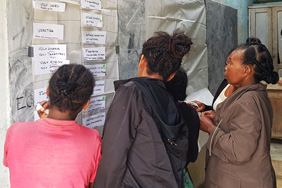Empowerment

Sustainable decisions result from far-reaching participation of affected people and communities. With robust data, information access, and local capacity development, CDE fosters the empowerment of actors who do not belong to established governance structures – especially in the areas of land use, food systems, and labour conditions.